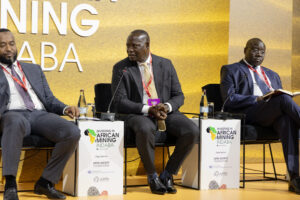
Alex Mould
Contrary to claims suggesting that the World Bank imposed four Independent Power Producers (IPPs) on Ghana during the erstwhile John Dramani Mahama administration, the Briton Woods institution has denied that any such thing happened, exposing the apparent lies put out by Alex Mould, a former Chief Executive Officer (CEO) of the Ghana National Petroleum Corporation (GNPC).
The World Bank also says it had not made financing or guarantees to Independent Power Producers (IPPs) to cover Power Purchase Agreements (PPAs) with the Electricity Company of Ghana during the energy crisis, known locally as ‘Dumsor’, from 2014 to 2016 as alleged.
Mr Mould, in an attempt to justify the take-or-pay PPAs that have imposed huge debts on Ghana, tried to blame the World Bank for four of the IPPs.
But, in a swift rebuttal, the World Bank in a statement stated categorically that it had not provided any financing or guarantees to IPPs to cover PPAs with the Government of Ghana.
Explanation
The World Bank explained that to secure Ghana’s energy future, it rather supported the Energy Sector Recovery Plan (ESRP) of the Government of Ghana for affordable and reliable electricity supply and enhance the accountability in the energy sector.
It said the ESRP mandated the rationalization of gas and power purchase costs in line with the demand, and approved the procurement of energy supply and service contracts in a competitive manner.
“The implementation of this policy will be essential to ensure that new power generation capacity is procured competitively and transparently based on the most cost-effective basis,” it said.
“This will prevent a recurrence of over-supply of generation capacity in future,” the World Bank stated.
The statement indicated that the World Bank Group provided financing and a guarantee to the Sankofa Gas Project, which since 2019 has increased the availability of natural gas for power generation by leveraging private capital investment and promoting a cleaner energy mix.
“The World Bank is committed to support Ghana in its efforts to sustain economic growth, accelerate poverty reduction, and enhance shared prosperity in a sustainable manner,” according the statement.
Alex Mould’s allegation
Mr Mould, in a media interview last week, alleged that four IPPs constructed under the Mahama government were in fulfilment of a World Bank condition for the $750 million guarantee in respect of the ENI-led Sankofa-Gye Nyame gas project.
According to him, one of the conditions for the $750 million World Bank guarantee was that the Mahama government would either build a pipeline or do the convertibility so that the gas could go from the west to the east and there would be off-takers – IPPs that are ready to take the gas.
The former GNPC CEO alleged that the World Bank therefore supported the Government of Ghana to support four IPPs to be built mainly because the Bank needed guarantees for the off-takers of the ENI-Sankofa-Gye Nyame gas.
“And, as such, they supported Ghana to give what we call a Government Support and Consent Agreement to these IPPs for them to be able to take to their financial institutions to say that: ‘We have a guarantee from the Ghana government which is backed by the World Bank; and, as such, they were able to get the financial decision to build these plants,” he said.
“That is what we have to understand; that there was a reason for these plants to be built. It wasn’t like these guys came willy-nilly, they had a PPA, they went to their banks, they got financial [support] and now we are saddled with that. No”, he added.
Government’s intervention
The government has already reviewed 26 out of the 30 PPAs the Electricity Company of Ghana (ECG) had initiated. The other four were not reviewed because they were already operational. The combined generation capacity of the 26 PPAs reviewed amounted to 7,838MW.
After the review, it was recommended that eight PPAs with a combined capacity of 2070 were to proceed without modification; four with a combined capacity of 1,810MW were to be deferred to 2018-2025; three PPAs with a combined capacity of 1,150MW were to be deferred beyond 2025; and 11 PPAs with a combined capacity of 2,808MW were to be terminated.
The review noted that the projected capacity additions from the PPAs were far in excess of the required additions inclusive of a 20 per cent system reserve margin from 2018 to 2030 and would result in the payment of capacity charges for the dispatched plants.
The estimated cost for the termination is $402.39 million, compared to an average annual capacity cost of $586 million each year or a cumulative cost of $7.217 billion from 2018 to 2030.
This yields an estimated saving of $6.8 billion over the 13year period.
Source: dailystatesman.com.gh








